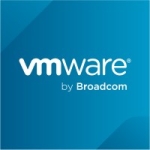I used Amazon AWS to create a server for our local application and integrated it for clients.
What I liked most about Amazon AWS are its services and infrastructure. They're good. It's a very user-friendly platform. Its servers are also more reliable than others.
An area for improvement would be their technical support packages. They should improve the technical support packages for users on free trial. There is a gap between the user and their technical support team. My suggestion is for them to build on their support for their free trial users.
I used Amazon AWS within the last 12 months, but not right now as I used it for my old project, when I was creating an EC2 server at that time. That was my virtual project, so I created an account and used the AWS services, and also created the server, but that project was closed, so the need was unmet.
Amazon AWS is scalable, and I'm rating it a nine out of ten for scalability.
Installation for this solution is not complicated. It's easy to install. It's straightforward. If I were to rate my experience with the initial setup of Amazon AWS, with five being the best and one being the worst, I'm giving it a five out of five.
Amazon AWS was deployed in-house. I didn't use any integrator, reseller, or consultant.
I was working with Alibaba Cloud before I worked with Amazon AWS. Alibaba Cloud is comparatively more difficult than Amazon AWS.
I also evaluated Google Cloud and the main differences between Amazon AWS and these other products include how Amazon AWS was easy to use, user-friendly, and its infrastructure.
I've also used the server I built via Amazon AWS for our Android applications, and found the reliability and the stability of that server to really good. I can use it again next time when I'm into development. The server's always good.
I had four customers on Amazon AWS. Those customers were architects working in technology and IT companies.
I also created a server for our taxi application client as one of my projects. I have a local user.
I had three to four people for deployment and maintenance. Some were nontechnical, while some were technical, with an IT background.
Because I was on the free trial version of Amazon AWS, I didn't get to use their technical support.
I used the free trial of Amazon AWS for my clients. I used it during the testing period. I developed applications for clients, then recommended AWS servers to them for the applications.
I highly recommend this platform to others who are considering using it, because its stability is good.
We have different requirements vs other users, so I'm not in a position to recommend features, especially because I have not used all the features of Amazon AWS. I can't say that this feature is good, or that feature is bad. I can't say which features to add to the next release.
I'm rating Amazon AWS a nine out of ten and this is both from an integrator and customer perspective.





















